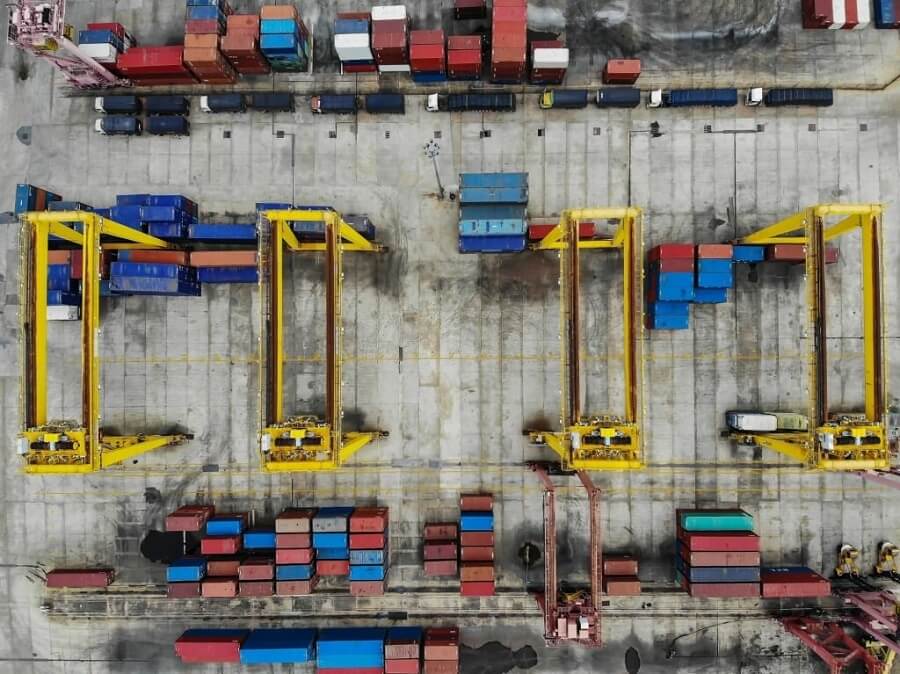The Impact of COVID-19 Pandemic On the Shipping Industry
Table of Contents
The transport industries have been affected both directly and indirectly. Operations across the shipping industries and the other industries related to them including the warehouses, truckers, ports, etc have been halted. As the virus spreads from one person to many, several companies and organizations limited their operations that were highly dependent on the man-power. Workers in various departments were asked to stay at home, avoid traveling, and maintain social distancing to avoid contracting the virus. Not just this, people all over the world have been advised to stay at home, according to the latest reports almost 1.3 billion people are under partial or complete lockdown.
Key Impacts:
The coronavirus has implications for the freight forwarding industry and has affected the shipping flows and the supply chains. The industries faced supply-demand problems at the start of the year 2020 due to the pandemic outbreak as the global Chinese exports faced a shortfall and caused the container volumes to drop. Supply chains and logistics have been greatly hit due to the COVID-19 crisis. And then due to the travel restrictions, the freight industry all over the world is suffering.
Visibility Issues:
According to experts, this could result in visibility issues and less profit in the longer run.
Lower Freight Demand:
The lockdown, border closure, and flight restrictions have lowered the freight demand and also have pushed the rates to drop too. None of the departments or sections of the freight industry have immunity against the COVID-19. With factories shut and the markets down, freight demands have lowered across the globe. According to reports, the Chinese vessels leaving the Chinese ports are only filled 10 percent of the total capacity.
Prices and Capacity
Since COVID-19 Pandemic, 90% of all airlines have reduced or instead suspended their passenger flight operations. This move has resulted in significant capacity being removed from the Air Freight as 50% of Air Cargo moves in Passenger Flights. This withdrawal has put a strain on the Air Freight Prices which has been climbing amidst the capacity cut.
Now to combat that passenger airlines are morphing their passenger aircraft in Cargo Carrier to haul critical supplies, foodstuffs, and other economically essential goods.
On the Oceanfront :
As Trade seize up around the world, the availability of cargo containers at Hamburg, Rotterdam, and Antwerp in Europe and Long Beach and Los Angeles in the U.S. are at the lowest levels recorded and this has caused prices to soar between 55% to 70% on certain trade lanes.
THE Alliance has now announced blank sailings on the Transpacific and the Transatlantic. Over 5 weeks, they are removing approximately 18-20% of the capacity of the Pacific.
On the North Atlantic, THE Alliance is withdrawing some 15% of the capacity over a 5-week period whereas 2M just announced a 20% reduction over 2 weeks also on the North Atlantic.
Thus far 2M show 11% reduction and Ocean Alliance a 12% reduction on the Pacific to the
West Coast for 4 weeks. Withdrawals are seen globally as Maersk is also today blanking several African sailings. As of 1 April 13:30 CET we are getting to 120 blank deep-sea sailings globally
Furthermore, some of the canceled sailings are announced with a lead-time substantially shorter than usual indicating a very rapid drop in booking activity. Hence, shippers need to be agile in re-arranging their supply chain accordingly in the coming weeks.
The bankruptcy of some industries:
The organizations having a tough time financially in the past are in more danger due to the COVID-19. The freight market for dry bulk vessels and also the market of offshore drilling assets were already financially unstable. The organizations having a tough time financially in the past are in more danger due to the COVID-19 and they might face bankruptcy soon.
The Decrease in Imports:
The Baltic Capesize showing the index about Chinese imports and production and industrial activities has seen a historical drop. Though the first few months of the year see a seasonal decline in the Chinese iron ore imports yet this decline combined with the decline due to COVID-19 and took the overall index down to a record level.
Some Common Problems:
The freight forwarding companies all over the world are facing a lot of problems including
- Lesser available capacity
- Obstruction overcharges
- Delay at some ports
- Availability of equipment
- Extra charges for the activities
When will things get better?
The current situation seems to be getting worse, no signs of improvement are there yet just as the fatality rate and the number of new cases would drop, with some bailout packages from the government, the freight industries would strengthen again.






